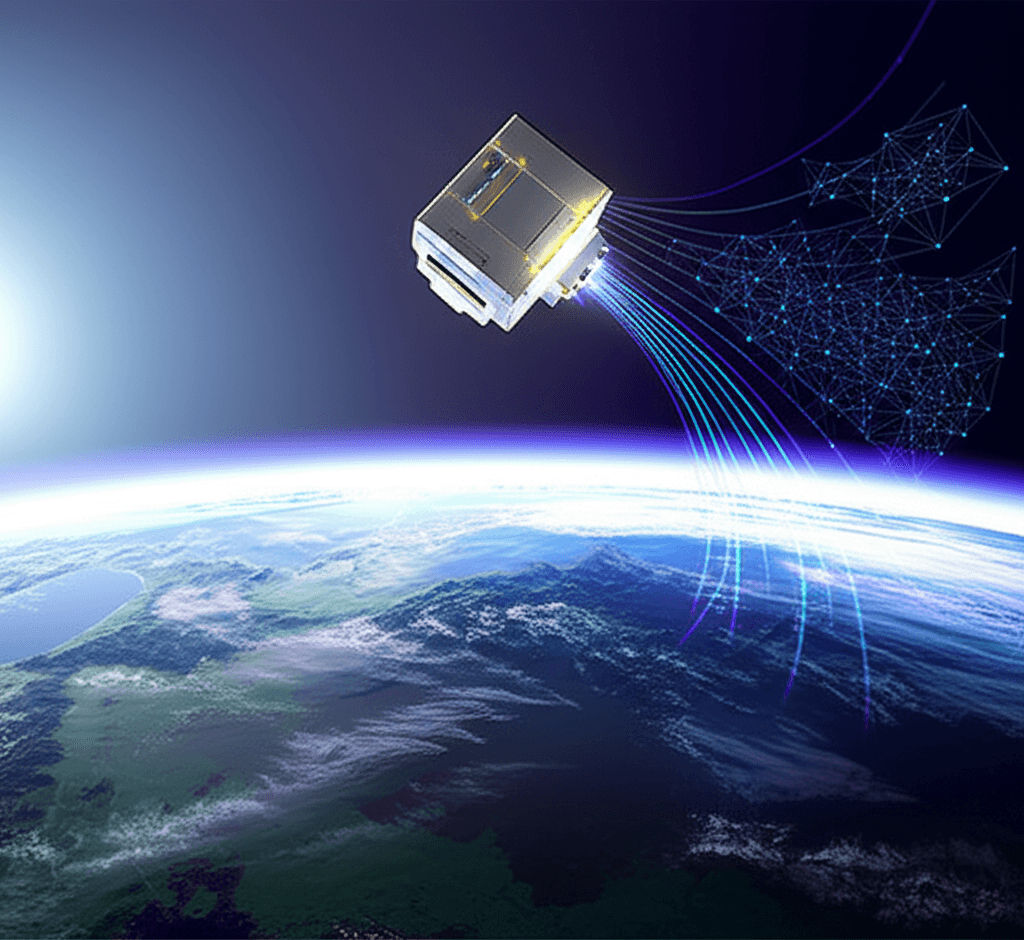Orbitt Space Secures $1M for AI-Boosting ULEO Propulsion Breakthrough
Ex-ISRO scientists' breakthrough air-breathing propulsion aims to unlock sustainable, debris-free satellite missions in Ultra-Low Earth Orbit.
May 28, 2025

A new entrant in the burgeoning spacetech sector, Orbitt Space, has successfully raised $1 million in a pre-seed funding round. The Ahmedabad-based startup, founded by former Indian Space Research Organisation (ISRO) scientists, aims to develop critical propulsion technology for satellites operating in Ultra-Low Earth Orbit (ULEO).[1][2][3] This investment, led by pi Ventures with participation from IIMA Ventures, will accelerate the design and development of Orbitt's innovative air-breathing electric propulsion system and a specialized satellite bus platform engineered for the challenging ULEO environment, defined as altitudes below 250 kilometers.[1][4][2] The infusion of capital is also earmarked for expanding their engineering team and conducting rigorous prototype testing of their proprietary systems.[1][4][5]
Orbitt Space, established in early 2025 by Christopher Parmar and Anupam Kumar, who bring extensive experience from ISRO in satellite design, testing, and deployment, is tackling a significant hurdle in satellite technology.[1][4][3] Operating satellites in ULEO presents a unique set of advantages, including the potential for significantly sharper imaging, reduced signal latency for communications, and lower radiation exposure, which allows for the use of more cost-effective commercial electronics.[4][2][5][6] However, this orbital region has remained largely underutilized due to the substantial atmospheric drag experienced by spacecraft at such low altitudes.[1][7][2] This drag necessitates frequent, if not continuous, propulsion to maintain orbit, quickly depleting conventional fuel supplies and shortening mission lifespans.[7][8] Orbitt Space's core innovation is an air-breathing electric propulsion system.[1][4][2] This technology is designed to use the residual atmospheric gases present even at ULEO altitudes as a propellant, thereby eliminating the need for satellites to carry their own fuel.[4][2] This approach promises to enable sustainable, long-duration satellite missions of 5 to 7 years in these high-drag environments, a significant leap from current capabilities.[4][5][6] The company is also developing a high-agility, 200kg-class satellite bus specifically designed for the rigors of ULEO.[4][2]
The ULEO domain, typically below 250-450 km, offers compelling benefits for various applications.[1][7][9][10] The proximity to Earth allows for higher-resolution Earth observation and more efficient data transmission, crucial for applications in climate monitoring, telecommunications, and national security.[2][11][10] Furthermore, ULEO is considered a "self-cleaning" orbit; the atmospheric drag that poses a challenge for sustained operation also ensures that defunct satellites or debris will naturally deorbit and burn up, mitigating the growing problem of space junk in higher orbits like traditional Low Earth Orbit (LEO).[7][2][5][6] LEO is becoming increasingly congested, with over 40,000 tracked objects and millions of smaller debris fragments posing collision risks.[1][5][6] Orbitt Space's technology aims to unlock ULEO's potential as a cleaner and strategically advantageous orbital band.[1][2] The successful demonstration of air-breathing electric propulsion has been a long-term goal in the space industry, with agencies like the European Space Agency (ESA) and NASA conducting research and tests for several years.[1] Orbitt Space's commercial development signifies a maturation of this technology towards practical application.[1]
The development of robust ULEO satellite capabilities, spearheaded by innovations like Orbitt Space's propulsion system, has significant implications for the Artificial Intelligence (AI) industry. AI algorithms are increasingly crucial for managing satellite operations, from autonomous navigation and collision avoidance to optimizing data transmission and onboard data processing.[12][13][14] Satellites operating in ULEO can provide higher fidelity and more frequent data crucial for training AI models in various fields. For instance, enhanced Earth observation data can fuel AI applications in precision agriculture, environmental monitoring, urban planning, and disaster response.[12][15][16][13] The reduced latency offered by ULEO satellites is also beneficial for AI applications requiring real-time data, such as autonomous vehicle navigation support or rapid deployment of AI-driven analytics in critical situations.[4][12] Furthermore, AI can be employed to manage the complex interplay of forces in the ULEO environment, optimizing the performance of air-breathing propulsion systems and ensuring satellite longevity. The ability to process data onboard using edge AI can reduce the sheer volume of data that needs to be transmitted to ground stations, making data pipelines more efficient.[12][16] ESA's Φsat missions have already demonstrated the potential of onboard AI for tasks like cloud detection and image-to-map conversion, highlighting the trend towards more intelligent satellite systems.[15]
Looking ahead, Orbitt Space is focused on the in-lab development and qualification of its core propulsion and avionics systems.[4][2] Following this phase, the company plans in-orbit demonstrations to validate the technology's performance and reliability in the actual ULEO environment.[4][2][3][5] A successful validation will pave the way for the commercial rollout of their ULEO satellite platform, positioning India at the forefront of this emerging orbital frontier.[2][5] The company's ambition is not just to build advanced hardware but to reshape access to space, enabling a new category of efficient, sustainable, and debris-free space infrastructure.[2] This development aligns with a broader trend of increasing private innovation in the Indian space sector, supported by governmental initiatives.[3] The success of companies like Orbitt Space could significantly enhance capabilities in Earth observation, high-data-rate communications, and climate science, contributing to both commercial and strategic national interests.[2][5][11]